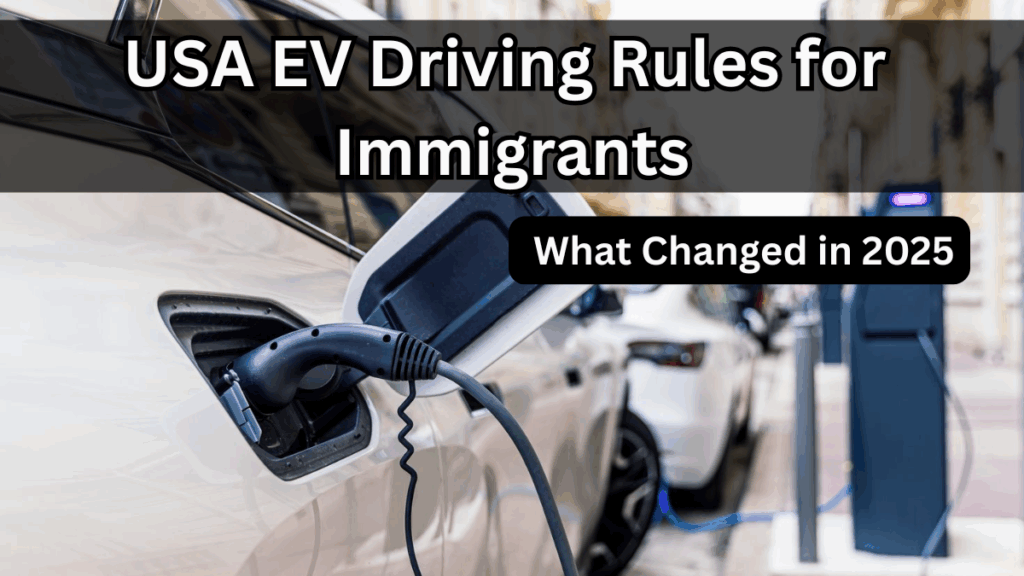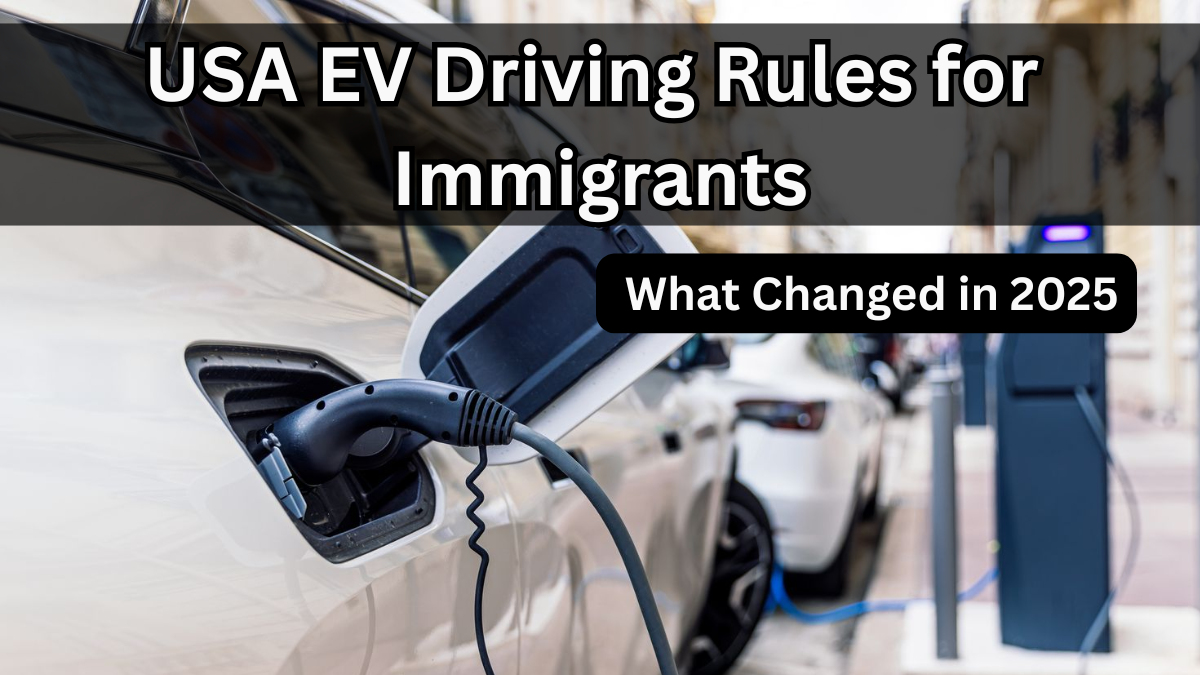Navigating the evolving landscape of electric vehicle (EV) regulations in the United States can be challenging, especially for immigrants. Recent policy updates in 2025 have introduced changes affecting driving privileges and vehicle access. This guide breaks down the key updates in EV driving rules USA 2025 and electric car regulations for immigrant drivers.

Key Changes in EV Driving Rules for Immigrants in 2025
1. End of Solo EV Access to Carpool Lanes
As of September 30, 2025, California and New York have discontinued programs allowing electric vehicles to use carpool lanes without passengers. These programs, which began in 1999, encouraged EV adoption but faced challenges due to overcrowded lanes. This change affects all EV drivers, including immigrants.
2. State Variability in Driver’s License Issuance
In 2025, 19 states and the District of Columbia continue to issue driver’s licenses to undocumented immigrants. These licenses are usually marked “not for federal identification” and cannot be used to board domestic flights or enter federal buildings. Some states, like Florida, have laws invalidating out-of-state licenses issued to undocumented immigrants, affecting immigrant drivers traveling between states.
3. REAL ID Enforcement Begins
Starting May 7, 2025, the federal government began enforcing the REAL ID Act. All drivers, including immigrants, must present a REAL ID-compliant license or alternative identification to board domestic flights or enter federal facilities. Immigrants with licenses marked “not for federal identification” may face challenges when traveling.
4. Federal Rollback of EV Incentives
The federal government rolled back incentives for electric vehicles, including tax credits up to $7,500. This change impacts all EV buyers, including immigrants, and may increase the cost of purchasing an electric vehicle.
State-by-State Overview of Driver’s License Policies for Immigrants
| State | License Issuance to Immigrants | Notes |
|---|---|---|
| California | Yes | Requires proof of identity and California residency |
| New York | Yes | “Green Light Law” protects immigrant data from federal access |
| Florida | No | Invalidates out-of-state licenses issued to undocumented immigrants |
| Illinois | Yes | Issues temporary visitor’s driver’s licenses without proof of lawful presence |
| Texas | No | Does not issue licenses to undocumented immigrants |
| Arizona | No | Does not issue licenses to undocumented immigrants |
Note: Policies are subject to change; always check with local DMV for the most current information.
Frequently Asked Questions
1. Can I drive an EV in the USA if I’m an undocumented immigrant?
Yes, in certain states. As of 2025, 19 states and the District of Columbia issue driver’s licenses to undocumented immigrants, allowing them to drive legally within those states. Driving privileges may be limited in other states, so verify local laws.
2. Will I be able to use carpool lanes with my EV?
Not necessarily. California and New York ended programs that allowed EVs to use carpool lanes without passengers as of September 30, 2025. Check local regulations for current access rules.
3. What is the REAL ID Act, and how does it affect me?
The REAL ID Act requires drivers to present a REAL ID-compliant license or an alternative acceptable form of identification to board domestic flights or enter federal facilities. Licenses marked “not for federal identification” may require additional documentation.
4. How does the rollback of EV incentives impact me?
The federal rollback of EV incentives removes tax credits up to $7,500 for new EV purchases. This affects all EV buyers, including immigrants, potentially increasing the cost of purchasing an electric vehicle.
Final Thoughts
Staying informed about EV driving rules USA 2025 is essential for immigrants. While some states continue to support immigrant drivers with accessible licensing options, others have restrictions that may affect legal driving privileges. Always consult your local DMV to ensure compliance with state and federal regulations.
Click here to learn more
